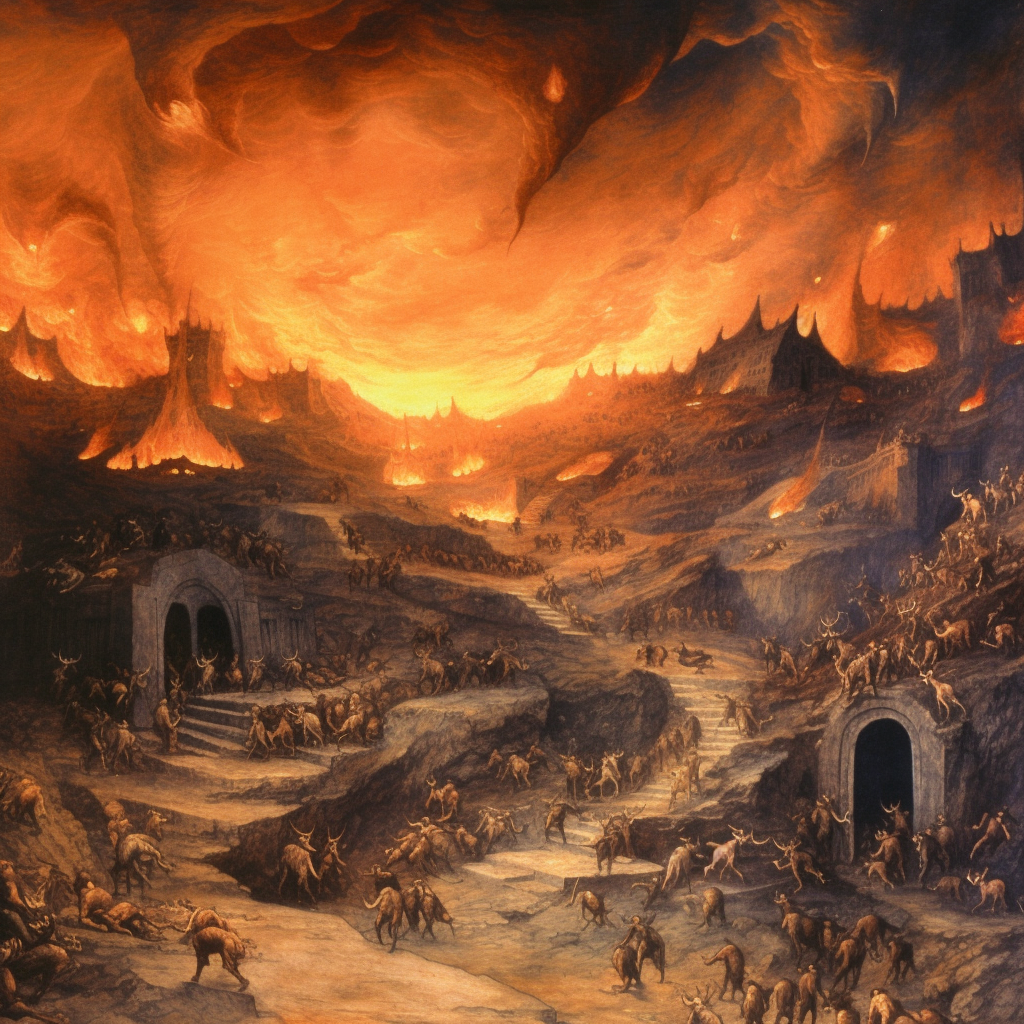
The concept of hell, as depicted in the Bible, is indeed a terrifying one. It is described as a place of eternal torment, a realm of unending separation from God. The Bible uses vivid imagery to convey the severity and permanence of this state.

Hell in the Bible
In the New Testament, Jesus himself speaks about hell more than anyone else. He describes it as a place of “unquenchable fire” (Mark 9:43), “darkness” (Matthew 8:12), and a place where “the worms that eat them do not die, and the fire is not quenched” (Mark 9:48).
In the book of Revelation, hell is described as a “lake of burning sulfur” where the wicked are “tormented day and night forever and ever” (Revelation 20:10).
The Nature of Hell
These descriptions are indeed frightening, but they serve a purpose. They underscore the reality of hell as a place of eternal separation from God. This is perhaps the most terrifying aspect of hell – the complete absence of God’s presence, love, and mercy.
Hell is also described as a place of remorse and regret. In the parable of the rich man and Lazarus (Luke 16:19-31), the rich man, after finding himself in hell, expresses deep regret for his life choices and pleads for relief from his torment.

Why You Don’t Want to Go to Hell
The descriptions of hell in the Bible are intended to serve as a warning. They highlight the consequences of living a life that rejects God and His ways. The eternal torment and separation from God that hell represents is a fate that we should strive to avoid.
However, the focus of Christian life should not be solely on avoiding hell, but rather on seeking a relationship with God. The promise of eternal life with God in heaven is a far greater motivator than the fear of hell. As Jesus said, “For God so loved the world that he gave his one and only Son, that whoever believes in him shall not perish but have eternal life” (John 3:16).
In conclusion, the concept of hell serves as a sobering reminder of the consequences of a life lived apart from God. It underscores the importance of faith, repentance, and a life lived in accordance with God’s will. As believers, our goal should not be merely to avoid hell, but to seek a relationship with God and strive for the promise of eternal life in heaven.
As an Amazon Associate we earn from qualifying purchases through some links in our articles.



